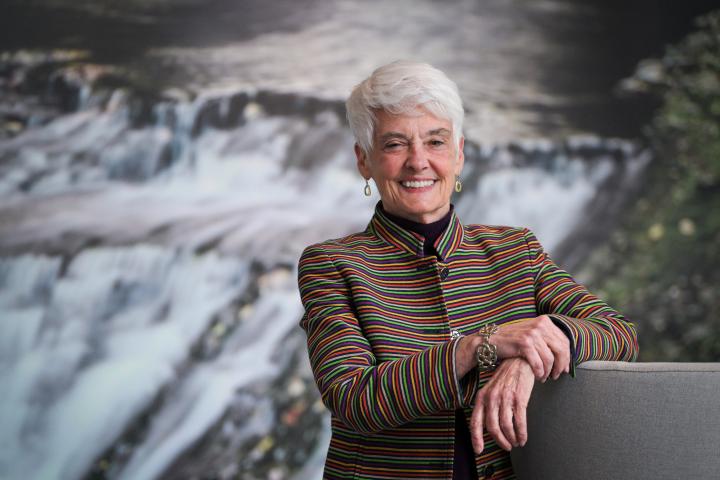
Q&A with Alex Kowalski
Alex Kowalski has joined the Department of Human Resource Studies this academic year. He recently defended his dissertation, “Terrible timing: the causes and consequences of problematic work schedules,” earning his doctorate in management from the Institute for Work and Employment Research at the MIT Sloan School of Management. Kowalski obtained a bachelor’s in journalism and mass communications from the University of North Carolina at Chapel Hill, and then earned a master’s of city planning degree focused on housing, community and economic development from the University of California, Berkeley.
What is your research about?
My research explores ways to support good quality jobs in challenging business environments. I currently study work inside e-commerce fulfillment centers, where many businesses are attempting to handle fluctuating consumer demand by adjusting employee schedules in real time. One day a fulfillment center might receive 10,000 orders, and the next day it might only get 5,000. While managers can predict these orders to some extent, when they miss the mark by even a small amount, they end up sending their workers home early or mandating that their workers stay later than expected, often into the wee hours of the morning. This has multiple negative consequences for workers. When they learn at the last minute that they have to stay late, they have to scramble to find child care. When they are working overtime for multiple days, they have to find time to squeeze in a few hours of sleep. When they get too few hours to pay their bills, they have to find supplementary sources of income.
The thing is, it doesn’t have to be this way. While many businesses adopt these scheduling practices so that they can be responsive to customers while keeping labor costs as low as possible, my research shows that some managers are able to provide their workers with much more tolerable hours while outperforming other fulfillment centers in terms of high levels of productivity and low levels of turnover. Using a variety of research methods ranging from interviews to field experiments, I am currently quantifying the costs that businesses incur by offering problematic schedules, highlighting what managers can do to offer better schedules while still delivering high levels of performance, and developing means to involve workers in improving their work conditions.
How did you become interested in your field?
After college, my first job was as an economics reporter. The U.S. was just coming out of the Great Recession, and I was covering the slow labor market recovery. I became fascinated by disparities in the quality and pay levels of available jobs. Wanting to understand what caused so much unevenness and what could be done to create better employment opportunities, I went back to school. Some great mentors and books got me hooked on sociological and labor relations perspectives on the study of work and employment. And then I kind of stumbled into studying the warehousing and logistics industry. Fortunately, warehousing is at the confluence of so many of the causes of labor market unevenness —new technologies, increasing competition, changing business strategies — which makes it a really great setting for learning about what it’s like to work in the 21st Century.
What impact do you hope your research will have?
Foremost, I am hoping my research will show current and future managers and human resource practitioners that they can offer good quality jobs while staying competitive. This requires both showing that there are real, negative costs to arranging work in ways that deprioritize employee well-being, voice and security and that there are tried and true alternatives out there that can benefit both employee and employer. My current research focuses primarily on the scheduling of work hours, which has recently gained a lot of attention as a major dimension of job quality, so I hope I can provide more evidence showing just how important it is that we consider how we experience all of the time we spend at work. Along the way, I also hope my research will speak to longstanding academic debates about managers’ role in shaping job quality in general, showing that managers have, in fact, a lot of leverage for making work better.
What attracted you to the ILR School?
There’s really no other place around with such a concentration of scholars studying the world of work. I’m so excited for all the discussions I can have with people just down the hall. But, what’s particularly appealing to me is that the ILR faculty don’t spend all their time sitting in the office. They actually get outside and engage the organizations, employees and institutions that are shaping how we work. I think that a two-way conversation between scholars and practitioners can make for better research, policy and teaching.
What are you most excited for about your time at ILR?
A lot. Finally getting to share the insights I’ve been accumulating while working toward my degree. Improving my research by presenting it to my colleagues. Meeting the alums and business and labor leaders coming to campus. Getting to know the students and learning about their life experiences. I’ll have to see, though, whether the benefits of walking uphill to campus every day outweigh the costs of all the perspiration.
What’s something people are surprised to learn about you?
That I was born on Leap Day. And so was my childhood neighbor. They actually did a story about us on the local Boston news station for our second (i.e., eighth) birthday.


